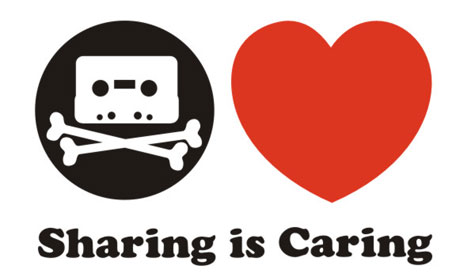Bessarabian Bulgarians in Moldova ex-Romania – documentary movie
Very few Bulgarians nowadays know well their history. Bulgaria has glorious and rich history. After the liberation of Bulgaria many Bulgarians migrated to Russia and Moldova, to escape the fierce wars and mass killingins from Ottoman Turkish. Nowdays most of people who live in Bulgaria has negative attitude towards our homeland. Few are those that know that 1000 kilometers from Bulgaria there are more Bulgarians, who are trying hard to preserve their nationality. It is very curious, that most of Bulgarians nowadays want to emigrate in Western countries, where Besarabian Bulgarians think and dream of going back to Bulgaria. I think we Bulgarians should re-think well before we think about emigration and try to do more for our country instead of having the post-communist and still rooted by communist negativism and pessimism that is ruling us.
Bulgarian Traditions of Bessarabian Bulgarians
(Note to make here is a lot of the commentaries on the video are junk especially concerning religion). Below is interesting statistics about Bulgarians who live on the lands of Besarabia. It was curious for me in Besarabia there is also Bulgarian schools and even Bulgarian universiy! There is also a city named BOLGRAD (BOLGAR GRAD – city of Bulgarians),
The general count of Besarabian Bulgarians in Republic of Moldova and Ukraine are about 230 000 There are also 151 596 who are Turkish speaking Bulgarians (Gagauzi). The complete number of Bulgarians Living in Besarabia is about 380 000!
In Ukraine, the number of Bessarabian Bulgarians is estimated at over 129,000 in Budjak (in the Odessa Oblast in the southern part of the country), and 75,000 elsewhere (mostly in other parts of Southern Ukraine), according to the 2001 Ukrainian Census, which counted a total of 204,600 Bulgarians in Ukraine. Bulgarians are a majority in Bolhrad District (45,600 of its 75,000 inhabitants), but they also inhabit other districts of Budjak: Arciz – 20,200 of the 51,700, Tarutino – 17,000 of the 45,200, Izmail – 14,100 of the 54,700, and Sarata – 10,000 of the 49,900. There are also 8,600 Bulgarians in the city of Izmayil (85,100 total population). Outside Budjak, Odessa has many Bulgarians that have moved there in recent years. The city of Bilhorod-Dnistrovsky is about 4% Bulgarian, making them the third-largest ethnicity there. The results of the census held in October 2004, there are 65,072 Bessarabian Bulgarians (1.95% of the population) in Moldova (excluding the region of Transnistria), concentrated mostly in the southern parts — chiefly in Taraclia district. In the census held in November 2004 in Transnistria, 3,164 (3.16%) Bulgarians have been counted in Tighina and surroundings and further 10,515 (2.39%) on the Eastern bank of the river Dnestr. 29,447 Bulgarians live in the cities (and represent 2.26% of the urban dwellers), and 36,215 live in the countryside (1.74% of the rural inhabitants). 90.60% of ethnic Bulgarians were born in Moldova (the national average is 94.6%), 5,968 (9.09%) in other countries that were once in the Soviet Union (the national average is 5.16%), and 199 (0.30%) were born elsewhere. In Moldova (and likely Ukraine too, although statistics are not available here), the Bulgarians tend to use their native Bulgarian in rural areas, and Russian (instead of the majority language Romanian) in cities and towns. 53,178 or 80.99% of ethnic Bulgarians declared Bulgarian language as native (69.23% in urban areas, and 90.55% in rural ones), 2,766 or 4.21% of them declared Romanian language as native (4.91% in urban areas, and 3.64% in rural ones), 9,134 or 13.91% of them declared Russian language as native (25.08% in urban areas, and 4.83% in rural ones), and 584 or 0.89% of them declared another language as native (0.78% in urban areas, and 0.98% in rural ones). 35,808 or 54.53% of ethnic Bulgarians declared Bulgarian language as first language in daily use (36.81% in urban areas, and 68.95% in rural ones), 5,698 or 8.68% of them declared Moldovan language/Romanian language as first (7.93% in urban areas, and 9.29% in rural ones), 23,259 or 35.42% of them declared Russian language as first (54.45% in urban areas, and 19.95% in rural ones), and 897 or 1.37% of them declared another first language (0.81% in urban areas, and 1.81% in rural ones). Bessarabian Bulgarians represent 28,293, or 65.56% of the population of the Taraclia district. There are also Bulgarians in Chişinău (8,868, or 1.2%), Găgăuzia (8,013, or 5.1%), Cahul district (5,816, or 4.9%), Leova district (3,804, or 7.4%), and Cantemir district (3,736, or 6.2%). The share of ethnic Bulgarians in Transnistria is 10,515 (2.39%), of which 2,450 (1.55%) in Tiraspol, and 7,323 (8.44%) in Slobozia sub-district (which contains the village of Parcani). There are also 3,001 (3.09%) Bulgarians in the city of Tighina, and 342 in 3 suburbs. In total, there are 79,520 (2.02%) Bulgarians in Moldova, including Transnistria. Bessarabian Bulgarians represent a majority in one city of Moldova, Taraclia (10,732 Bulgarians, or 78%) and in 8 communes in the country:





